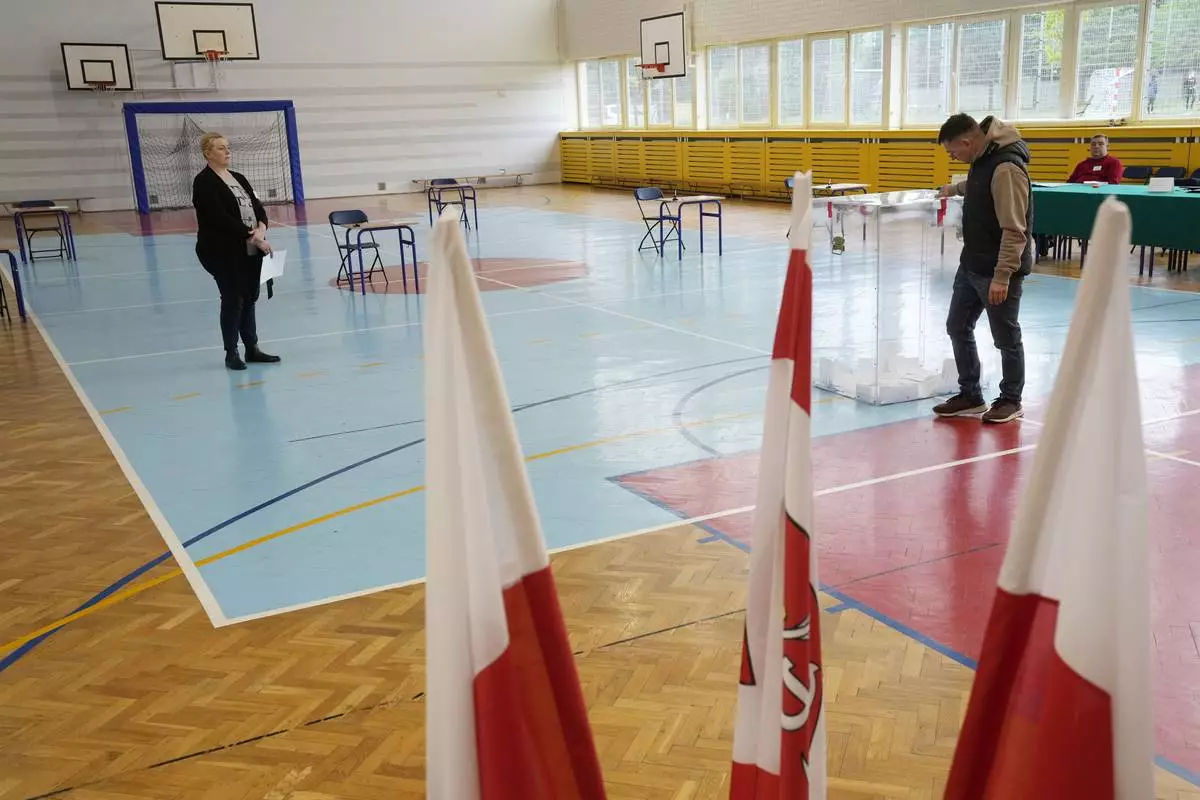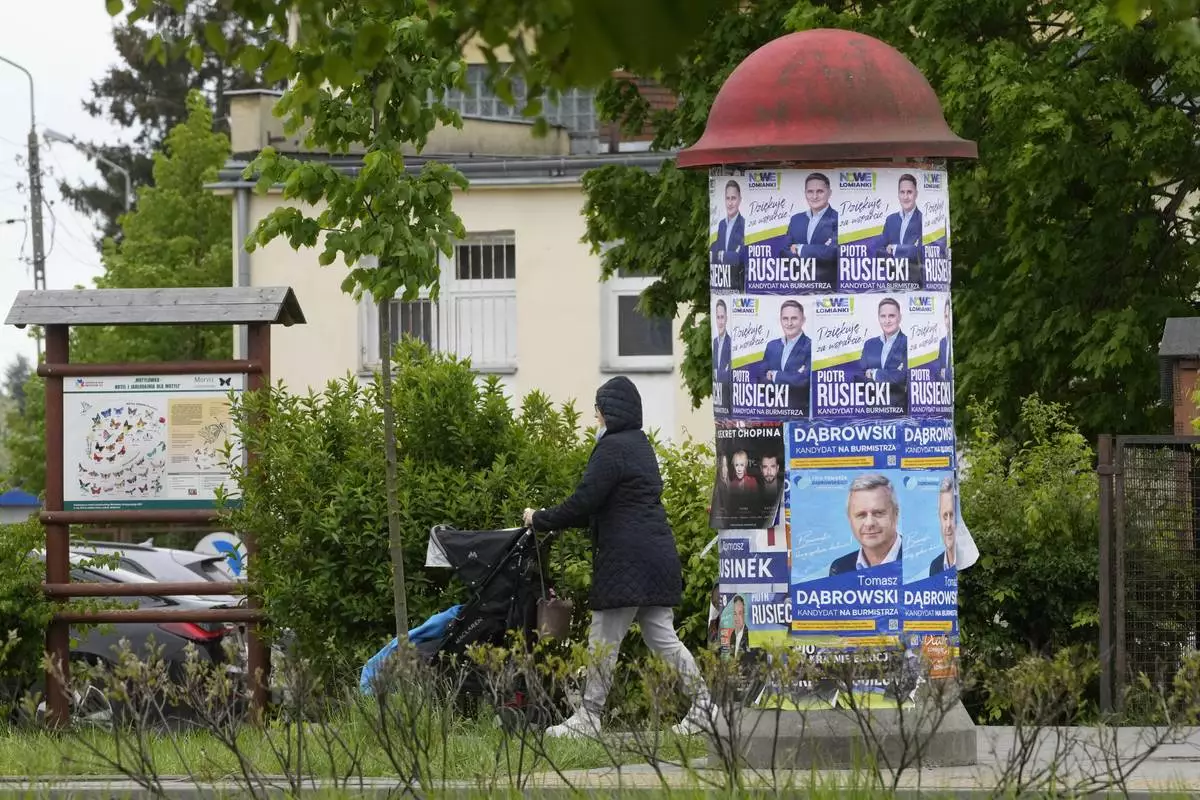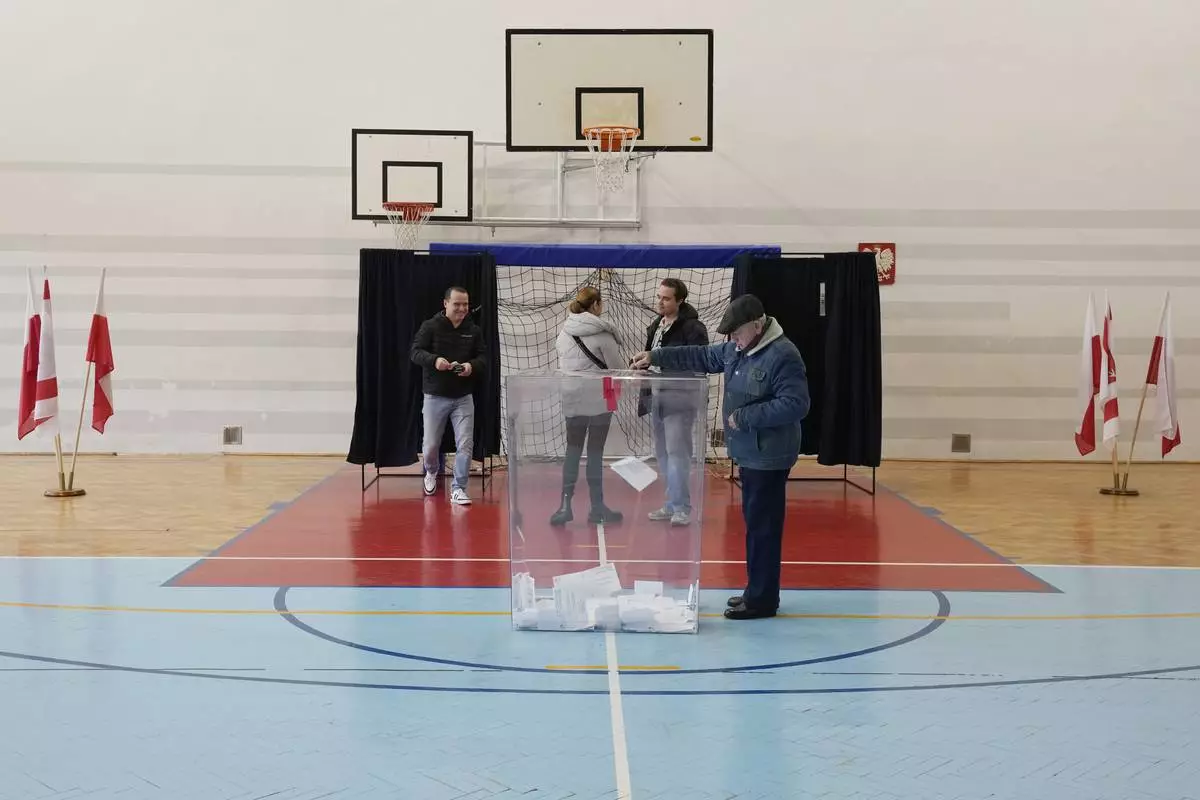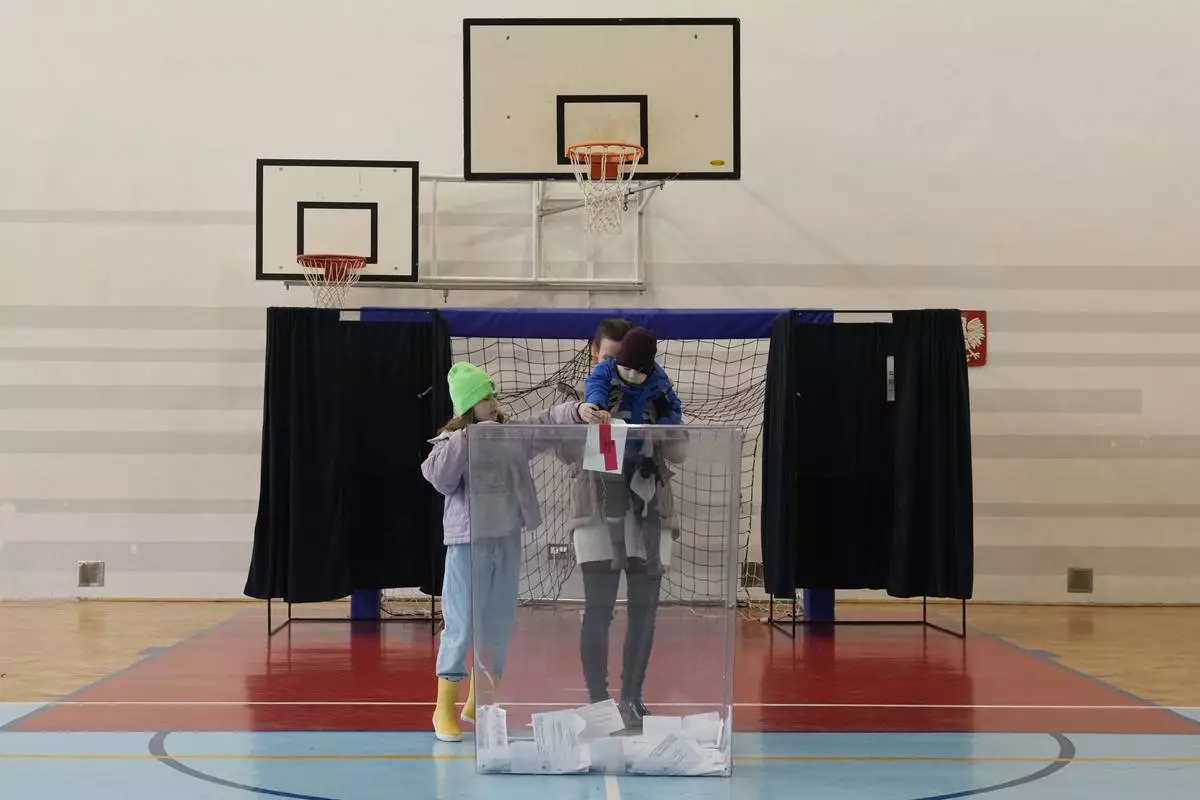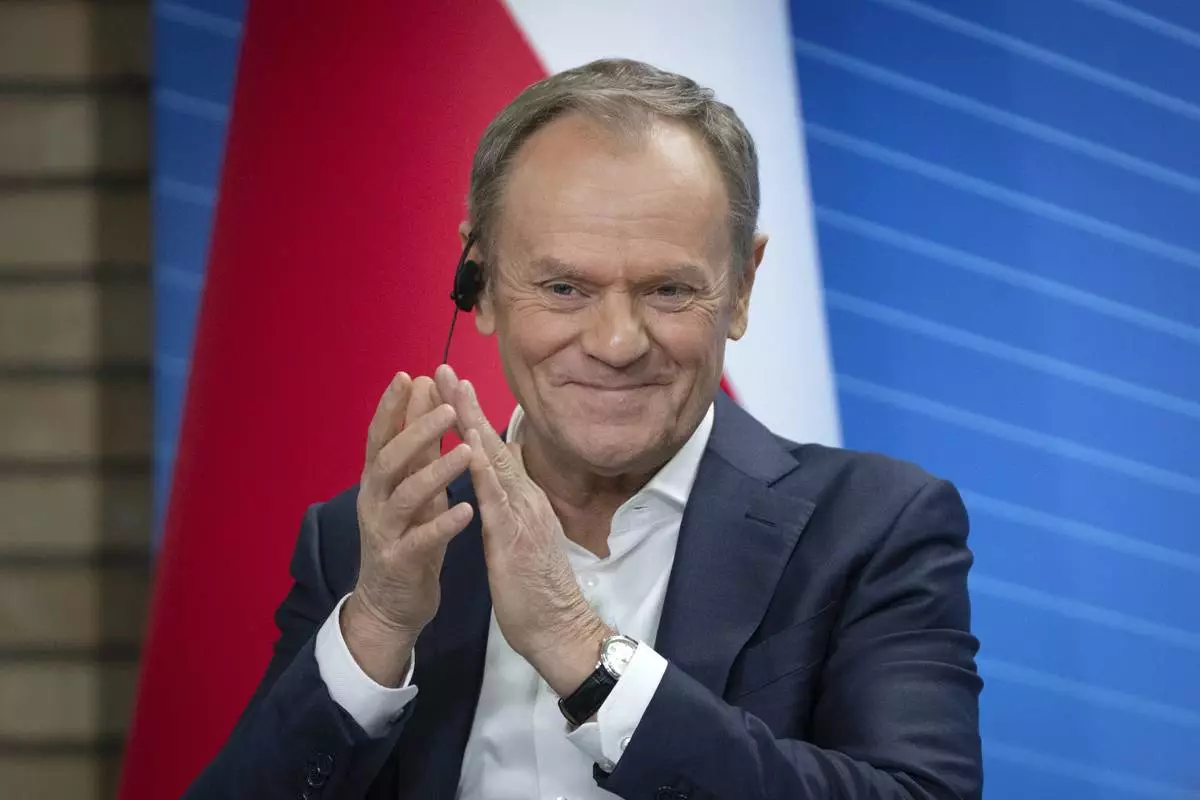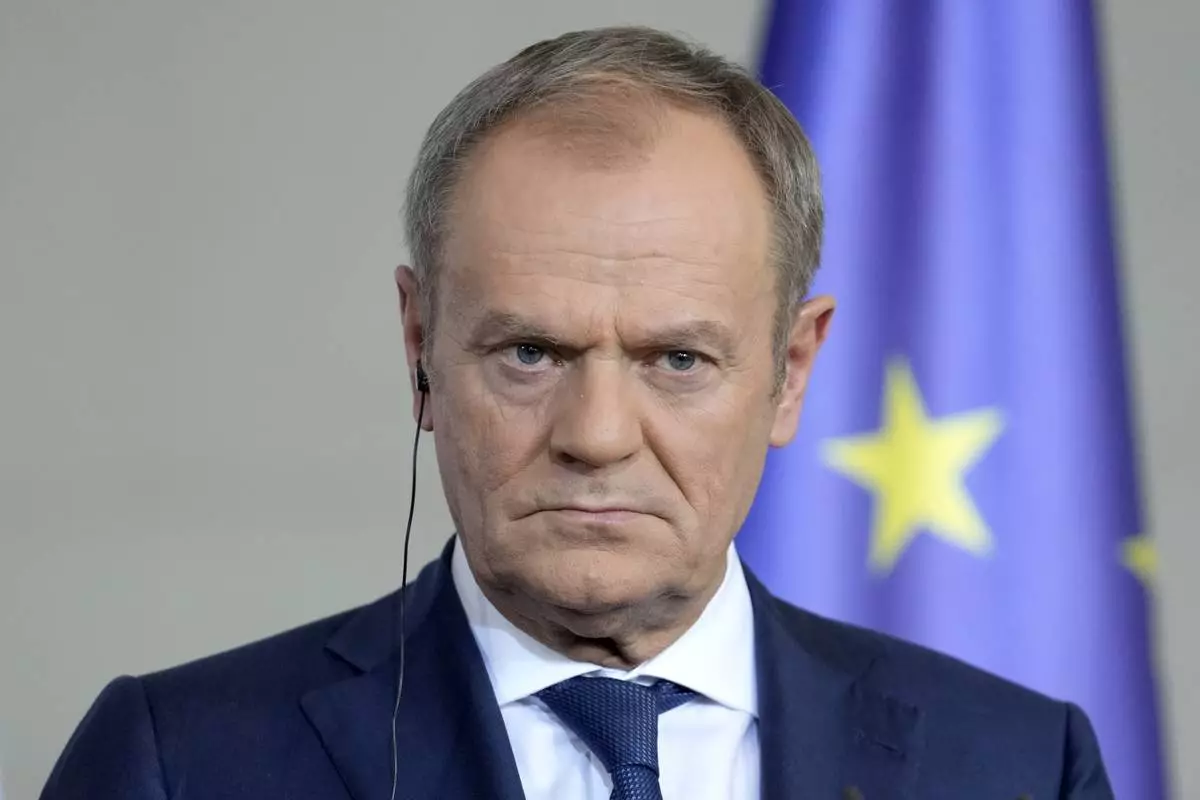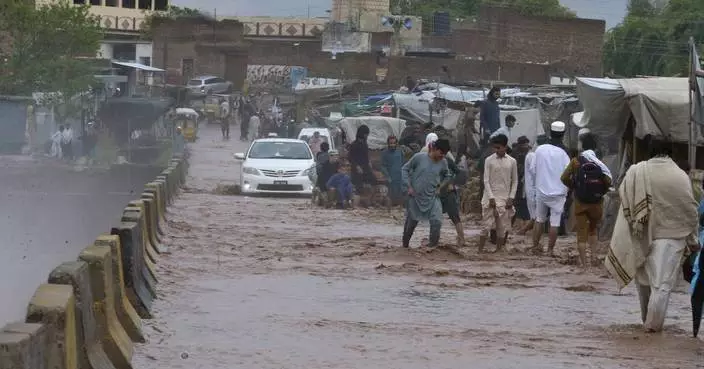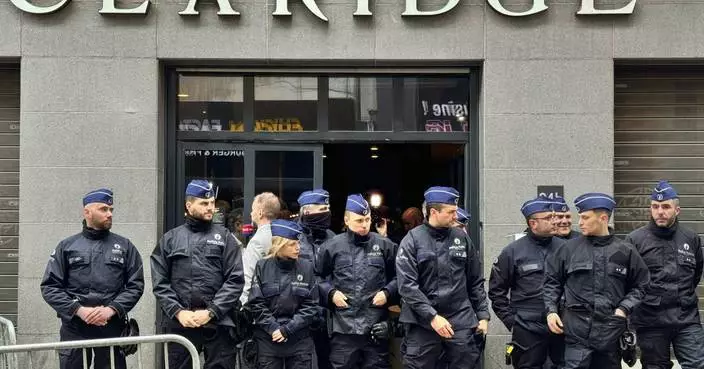Blaz Zidar has a mission: patrol along a razor-wire fence on Slovenia's border with Croatia, catch migrants trying to climb over, hand them to police and make sure they are swiftly sent out of the country.
The 47-year-old former Slovenian army soldier, dressed in camouflage trousers with a long knife hanging from his belt, is one of the vigilantes who call themselves "home guards" — a mushrooming anti-migrant movement that was until recently unthinkable in the traditionally liberal Alpine state. The name of the self-styled group evokes memories of the militia that sided with fascists during World War II.
"I would prefer to enjoy my retirement peacefully, but security reasons are preventing this," Zidar said as he embarked on yet another of his daily foot patrols together with his wife near their home village of Radovica nestled idyllically among vineyards and lush green forested hills.
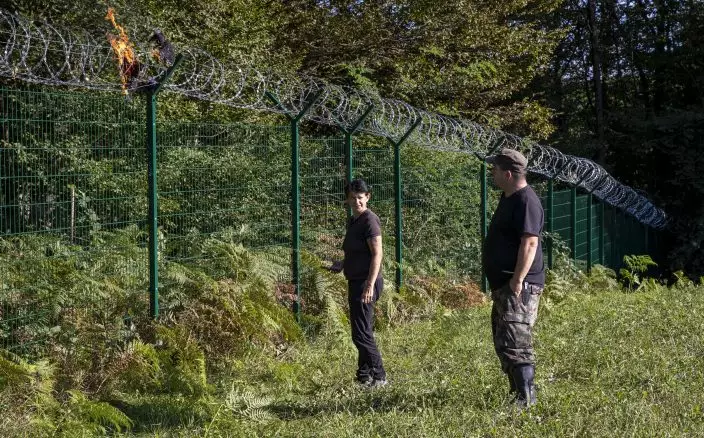
In this Sept. 4, 2019 photo, Blaz Zidar and his wife look at a burning jacket left by migrants on the razor-wire at the border fence between Croatia and Slovenia, in the village of Radovica, eastern Slovenia. The European Union country of Slovenia has seen the rise of an anti-migrant movement called the “home guards", that patrol along Slovenia’s border with Croatia, catching migrants trying to climb over, and handing them to police. (AP PhotoDarko Bandic)
Zidar complained that he had to act because Slovenian police aren't doing their job of guarding the borders from the migrant flow which peaked in 2015 when hundreds of thousands of refugees from the Middle East, Africa and Asia, fleeing wars and poverty, crossed from Greece, Bulgaria, Serbia and Macedonia via Hungary or Croatia and Slovenia toward more prosperous Western European states.
Zidar said that his six children often join them in the border monitoring mission "because they have to learn how to protect their nation from intruders."
Slovenia's volunteer guards illustrate strong anti-migrant sentiments not only in the small European Union nation of 2 million people, but also across central and eastern Europe which is a doorway into Western Europe for migrants and where countries such as Hungary have faced criticism for open anti-migrant policies. Similar right-wing guards that frequently attacked migrants crossing the borders previously openly operated in Hungary and Bulgaria.
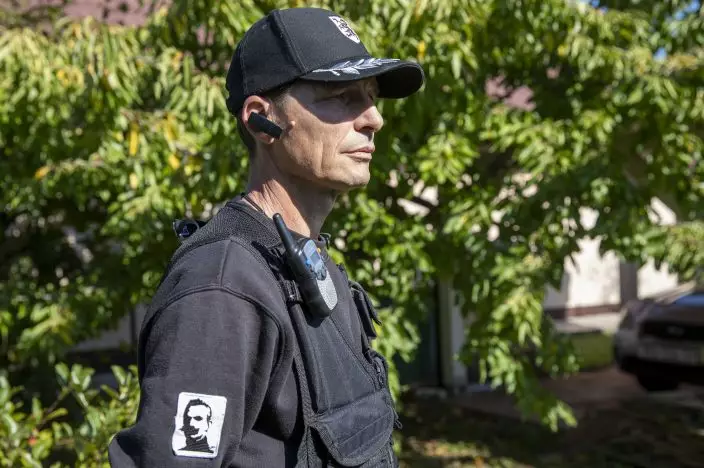
In this Sept. 4, 2019 photo, a member of a volunteer group called the Stajerska Garda looks toward his leader Andrej Sisko, in Maribor, Slovenia. The European Union country of Slovenia has seen the rise of an anti-migrant movement called the “home guards", that patrol along Slovenia’s border with Croatia, catching migrants trying to climb over, and handing them to police. (AP PhotoDarko Bandic)
Police in Croatia — an EU member state that is still not part of the borderless EU travel zone — routinely face accusations of pushbacks and violence against migrants trying to come in from Bosnia. In Slovenia, the authorities are putting up additional fences on the border with Croatia after Italy's former hard-line interior minister, Matteo Salvini, threatened "physical barriers" would be built between Slovenia and Italy if the migrant flow wasn't completely stopped.
The fiery anti-migrant rhetoric by Salvini and Hungarian President Victor Orban, who was the first to order fences on Hungary's border with Serbia at the start of the migrant crisis, have resonated among some in Slovenia, an exceptionally calm, nature-loving country.
Miha Kovac, a Slovenian political analyst who is a professor at the University of Ljubljana, described the anti-migrant guards as "guys with big beer bellies who don't have much of an education, who didn't have much of a career, who don't know what to do with themselves in the contemporary world.
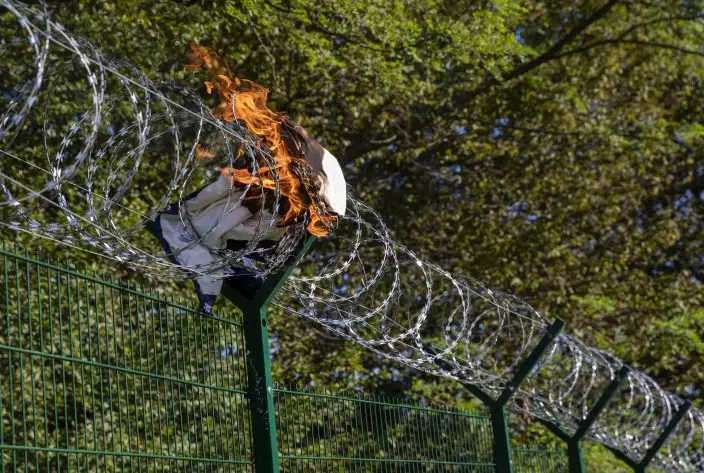
In this Sept. 4, 2019 photo, a jacket left by migrants burns in the razor-wire at the border fence between Croatia and Slovenia in the village of Radovica, eastern Slovenia. The European Union country of Slovenia has seen the rise of an anti-migrant movement called the “home guards", that patrol along Slovenia’s border with Croatia, catching migrants trying to climb over, and handing them to police. (AP PhotoDarko Bandic)
"They find their meaning in this kind of movement and this kind of hatred toward migrants."
Kovac said that in the short run, the right-wing groups represent no real danger to the tiny EU nation. But if the European migrant crisis continues "this kind of movement might become more aggressive."
"Slovenia is a country of 2 million and if you would become a kind of immigrant pocket with the population of ... 20, 30, 40, 50,000 immigrants, this could cause quite significant problems," Kovac said.
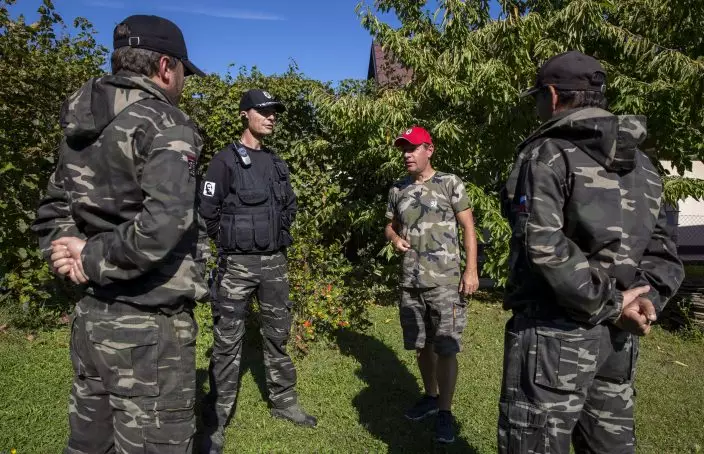
In this Sept. 4, 2019 photo, Andrej Sisko, center right, leader of volunteer group called the Stajerska Garda talks to his lieutenants in Maribor, Slovenia. The European Union country of Slovenia has seen the rise of an anti-migrant movement called the “home guards", that patrol along Slovenia’s border with Croatia, catching migrants trying to climb over, and handing them to police. (AP PhotoDarko Bandic)
Slovenian authorities don't seem to mind the self-styled guards patrolling the country's borders, as long as they don't do anything against the law.
"The self-organization of individuals does not in any way imply mistrust of police work," said France Bozicnik, the head of criminal police at a police station near the border. "It's just the opposite."
"People call us on the phone every day and give us information about suspicious vehicles and suspicious persons, and we sincerely thank them for this information," he said. "They are welcome to continue with this reporting."
Nevertheless, the images of masked men in military uniforms that appeared about a year ago have shocked many in Slovenia, the birthplace of U.S. first lady Melania Trump. The largest volunteer group called the Stajerska Garda was filmed taking an oath to secure public order in the country.
The group commander, Andrej Sisko, said his goal is "to train people to defend their country and help the military and police at a time of massive migrations from the African and Asian states, mostly Muslims."
Sisko, who spent six months in prison for his paramilitary activities, insisted that his guards don't carry real weapons or do anything illegal.
"People are mostly supporting us, they are stopping and congratulating us on the streets," Sisko said in an interview with The Associated Press as four of his men in camouflage uniforms, wearing genuine-looking mock guns, stood watch at his house in the suburb of the northern Slovenian town of Maribor.
With the continuing migrant flow in the region, human rights groups have accused authorities in Slovenia, Serbia, Greece, Hungary and particularly Croatia of illegal and forced pushbacks from their borders.
Witnesses cited by the Border Violence Monitoring Network described Croatian police officers at the border with Bosnia burning clothes, sleeping bags, backpacks and tents in addition to targeting other possessions such as cellphones, cash and personal documents. Croatian officials have repeatedly denied the claims.
"The police first attacked by shooting up in the air, and then they ordered us to lay down," said Shabbir Ahmed Mian from Pakistan, adding that after police body searches they "pushed" the group of 15 that included women, children and the elderly into a small van that dumped them back to Bosnia.
"We couldn't breathe, there was no oxygen," he said.



